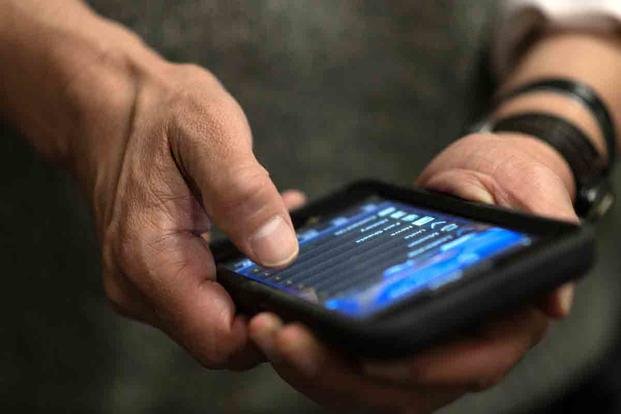One of the Army’s highest-profile divisions has set a ban on most work-related cell phone usage after work hours.
Maj. Gen. David Doyle, commander of the Fort Carson, Colorado-based 4th Infantry Division, issued a memo last week barring leaders from texting or calling subordinates between 6 p.m. and 5 a.m. — with some caveats, including communications for health or safety reasons, or personal communications.
“We received feedback from our soldiers across the division expressing a desire for more predictability and better communication practices,” Doyle said in a statement to Military.com. “If we practice good communication and training management fundamentals, then we’ll place less unnecessary stress on the unit, improving quality of life and readiness.
Read Next: Marine Corps Creates Billet to Keep Dual-Military Families Together During Stressful Deployments, Moves
In his memo to the division, Doyle noted that after-hours communications keep soldiers on edge and, in many cases, aren’t necessary. The new policy is also punitive, meaning leaders who do not abide by it could face legal or other disciplinary ramifications.
The move comes amid a historically high cadence of deployments and training rotations for soldiers, despite no major ongoing wars.
Soldiers are away from home now more than during much of the peak of the wars in Iraq and Afghanistan as the service is tasked with missions in Africa, Europe and the Pacific. The little time soldiers do have at home to rest and spend time with their families is precious.
That constant barrage of missions, leaders have warned, has had an enormous impact on the mental health of the service’s rank and file. Meanwhile, soldiers have reported unit-level leadership putting out guidance or texting information on the following day’s events that could have waited until morning. But juggling quality of life for soldiers, while meeting the demands of the Army’s missions, has been a difficult needle for top officials to thread.
The Fort Carson policy is akin to a similar set of rules established by the Army’s 10th Mountain Division at Fort Drum, New York, in 2022.
As some units are moving out to curb nonstop work communication, so-called “digital hygiene,” sometimes referred to as “cyber hygiene” — referring to how often someone is connected to technology — is a growing topic in the media and medical field. Being constantly tethered to smartphones and other devices has been connected to depression, anxiety and other health ailments.
The Army didn’t return a request for comment on whether it is considering any similar service-wide policy.
Relationships with phones, particularly with the rise of work-from-home culture, has made it easier for work to bleed into personal time. Some civilian companies have started to codify policies restricting when managers can contact employees outside typical working hours.
But mandating a disconnection has also caught some traction. A law was proposed in the California state legislature on April 6 that would create a so-called “right to disconnect,” effectively giving employees legal protection to ignore work calls, emails and texts after hours.
In 2017, France passed its own right to disconnect law that gives workers at companies with more than 50 employees the right to sever digital communication from employers outside of regular business hours. Portugal, Belgium, Australia and Ontario, Canada, have also since passed similar laws.
“This policy is about improving the 4th Infantry Division culture,” Doyle said in a statement. “We’re listening and willing to implement solutions to move us closer to achieving what the soldiers requested and what our units needed.”
Related: Soldiers Are Getting Burned Out. Army Leadership Knows It’s a Problem.
Story Continues
Please rate this CIBA article
Vote






